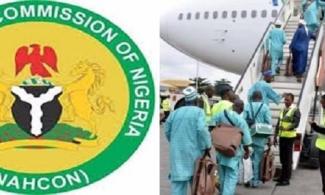
This was made known in a statement by the NAHCON’s Deputy Director of Information, Mousa Ubandawaki.
The National Hajj Commission of Nigeria (NAHCON) on Wednesday announced a policy requiring Nigerian pilgrims in Madina, Saudi Arabia to be moved to Makkah after five days they arrive in the city for the Hajj pilgrimage.
This was made known in a statement by the NAHCON’s Deputy Director of Information, Mousa Ubandawaki.
Ubandawaki said that the rule which would take effect from Thursday was due to complaints of overcrowding of Nigerian pilgrims in Madina City, adding that while the commission was giving 100 percent opportunity for Nigerian pilgrims to visit Madina in the first phase or before Arafat, the move was to avert sanctions against the country if there are pilgrims overcrowding in Madina.
“The commission had to adopt the new policy after wide consultations and exhaustive deliberation. Moreover, it is a known fact that Nigerian pilgrims live in the exclusive Markaziyya area during their stay, a decision which has been overwhelmingly commended and for which the commission never intended to compromise,” Daily Trust quoted Ubandawaki as saying in the statement.
Ubandawaki further stated that the policy was to avoid being penalized for airlifting more pilgrims into Madina than the available accommodation or being forced to take the pilgrims to another area which is well below the standard of the current Markaziyya.
According to him, “As tough a decision this may seem, we felt it is a necessary action we need to take so that we won’t be at the receiving end of Saudi laws, and at the same time it was considered more utilitarian for Nigerian pilgrims to spend five days in Madina thereby allowing more pilgrims to travel to Madina in the first phase from where they would be moved to Makkah to continue with their Hajj rites than to delay their departure for wants of bed spaces in the Prophet’s city.” .
He therefore called for the understanding and support of the pilgrims, Hajj officials and other stakeholders for the successful implementation of the policy